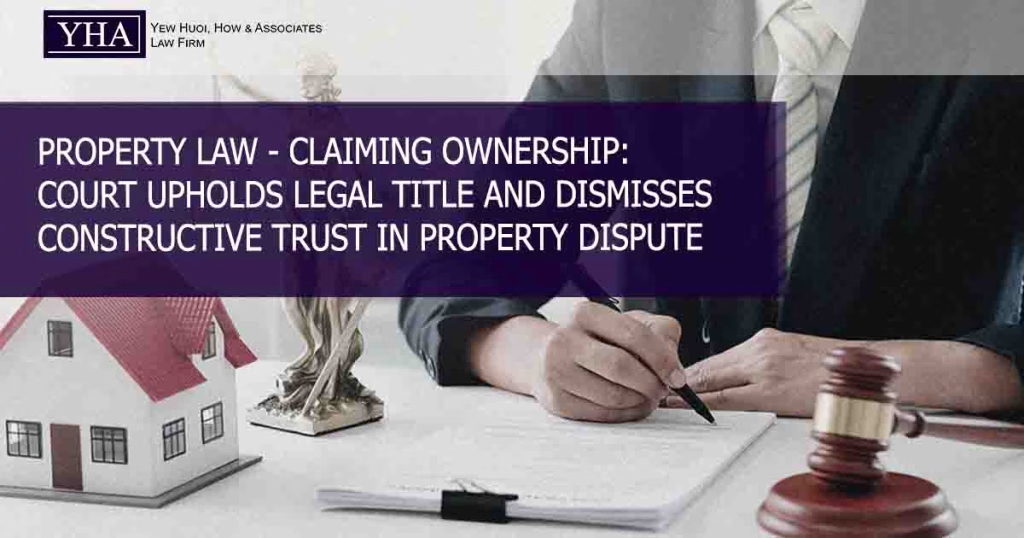Summary and Facts
A (the plaintiff) sought a declaration of proprietary interest in a property in Port Dickson, claiming it was held on constructive trust by B (the first defendant), a former employee. A argued that he had financed the property purchase because B was unable to secure a loan. However, B contended that the funds used to buy the property came from her own earnings, which A had merely managed. C, another party, was also involved in the proceedings.
Legal Issues
- Whether A retained a proprietary and beneficial interest in the property, warranting a constructive trust.
- Whether B’s actions were unconscionable, thus justifying the imposition of a constructive trust.
Court Findings
- The court held that A failed to prove that a constructive trust should be imposed. There was insufficient evidence to support A’s claim of ownership, and no proof of unconscionable conduct by B in acquiring the property. The court emphasized that imposing a constructive trust requires evidence of fraudulent or unconscionable behavior, which was not present in this case.
- The court granted B’s counterclaim, ordering the removal of the private caveat filed by A and declaring B as the legal owner. B was awarded nominal damages of RM10,000 to compensate for the hardship caused by the caveat.
Practical Implications
This case emphasizes the need for solid evidence when asserting proprietary claims and highlights that constructive trusts require proof of unfair conduct. For Malaysians, this ruling serves as a reminder that without clear evidence of unjust actions, the court is unlikely to impose a constructive trust. Furthermore, filing a caveat without substantiated claims could lead to damages liability.
Reference Cases
- NKS Tharmaseelan a/l NK Sinnadorai v Amaratham a/p Ramiah & Ors [2024] 11 MLJ 141

